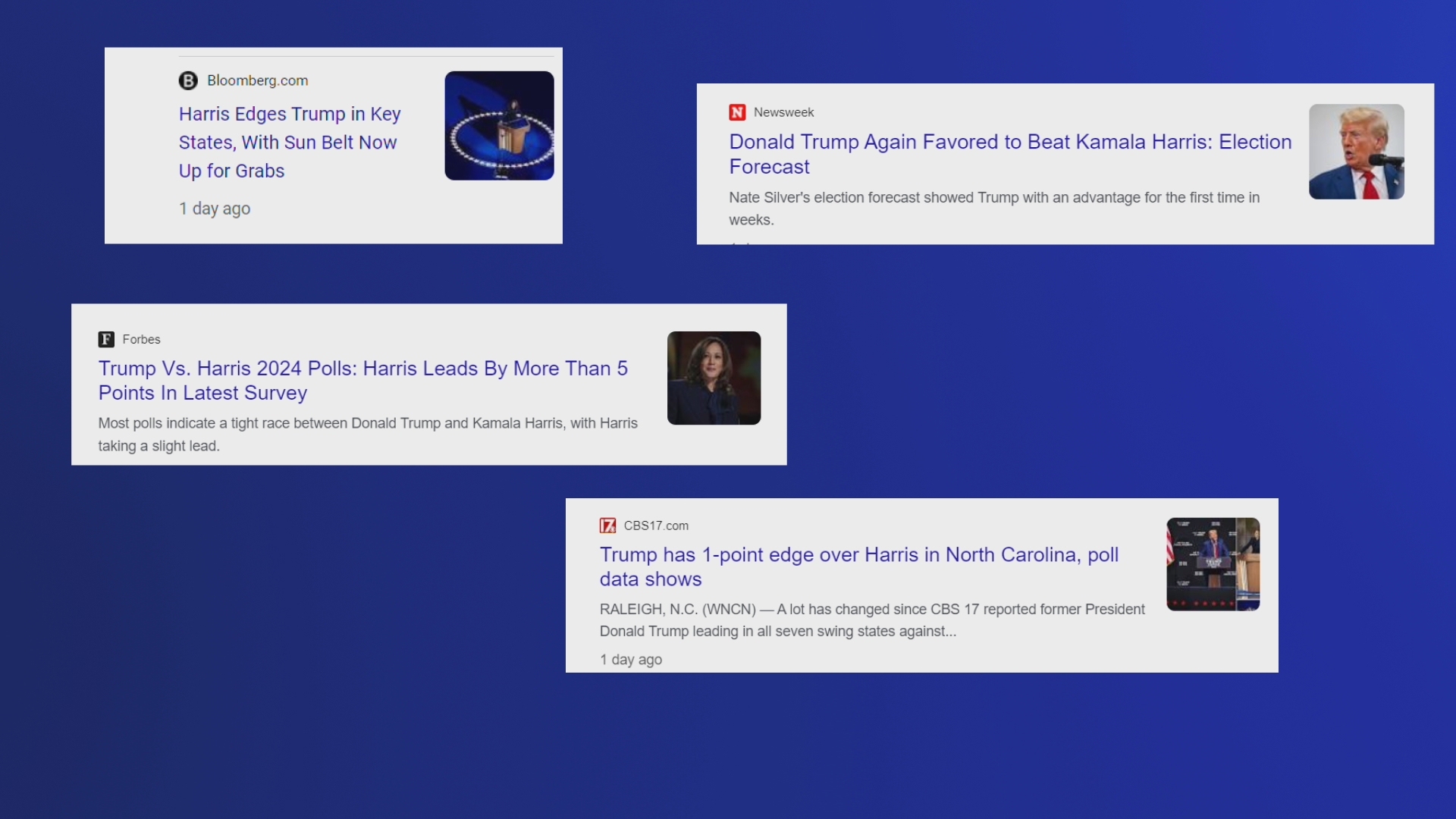MACON, Ga. — As we get closer to the presidential election, you may see news outlets, colleges, and organizations showing polls predicting which way voters will swing this November.
It can be confusing to know what's true when you see slightly different percentages.
The latest CBS News poll shows that Vice President Kamala Harris is neck-and-neck with former President Donald Trump in Georgia.
Voters are keeping an eye out on the varying results.
"I especially pay attention to it a lot the closer we get to the election," Georgia voter Tony Cofield said.
Polls lost trust with some voters after former President Trump's victory in the 2016 election, when polls favored Hillary Clinton.
Cofield says he likes to check in to see where pollsters believe the nation sits.
"Polling itself doesn't have a direct impact on the election, but it's still something to keep in mind," he said.
Middle Georgia State University Department of Political Science Chair and Professor Christopher Lawrence says opt-in social media polls or convenience polls are often biased.
Lawrence says Partisan Polls or polls by organizations that favor one party are also biased.
"Usually the gold standard kind of polls are the ones that are associated with major media outlets, even ones that you might not necessarily think are unbiased," Lawrence said.
He says to keep in mind that these estimates come from samples of about 500 - 1,000 people give or take. The data is collected through a mix of phone calls and online surveys.
"(Pollsters) balance out the weaknesses of the two methods and get the strengths of the two methods," he said.
Lawrence says you can think of the process like giving blood.
"They don't take all your blood, right? They just take a little bit of it and they can kind of figure out what's going on in your blood based on just a few milliliters of blood," he said.
Different sample sizes will produce slightly different numbers, and impact the margin of error you see.
"If the same candidate's ahead in multiple polls, that probably suggests they're probably leading, but still, there's always the chance that [the poll is] not right," Lawrence said.
He says if you want a good gauge on who is leading, monitor the battle ground states, like the peach state.
"From Georgia, from Pennsylvania, from the states that look like they're going to be close in this election, is always going to be critical," Lawrence said. "Of course, we don't know in advance which states are going to be most critical - that's always the challenge."
In the end, they will determine which candidate hits the 270 electors needed to win.
As for Cofield, he is just watching the numbers.
"Polling doesn't effect how I vote at all," he said.

